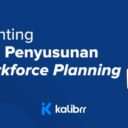Popular Work Perks That Can Help Employees Deal With Traffic

Since flying cars and teleportation haven’t become viable options, consider offering your team ways that can help them limit the stress and time wasted from their daily commutes
Like time spent and taxes paid, another “T” that is now almost synonymous with work is traffic. Slow commutes that are a common result of a heavy volume of vehicles is an unfortunate aspect of making a living these days and is no longer limited to drivers of ambulances, public utility vehicles, delivery trucks, and others who drive professionally.
Be it an office, classroom, warehouse, clinic, or storefront, almost everyone has to travel to work in some way, shape, or form. This means spending time on the road, and unfortunately in the Philippines, especially highly urban areas like Metro Manila and Metro Cebu, what should be a few minutes’ commute can become an hour, or two, or worse.
As government “solutions” to address bad traffic still leave very much to be desired, it is seemingly up to companies themselves, for now anyway, to develop ways to make the problem a little more bearable for their people.
Being one of these employers, you may want to consider the following work perks, which are actually provided by some of the world’s most well-known companies to its employees, to lessen the constant traffic problems for your operations and your team.
TOPICS
Remote Work
Technology has increasingly enabled employees to work remotely, as well as during non-standard hours. Offered to their employees by major multinational companies like Amazon and Colgate-Palmolive, “working off-site” continues to be among the most recommended ways to get around the problem of constant heavy traffic.
Indeed, working from home, or anywhere else for that matter, means there are fewer employees on the road commuting to work. In terms of operations, employees working remotely save time from their non-commute, and are able to get a head start in the day and complete their tasks and produce their output for their employers sooner rather than later.
Granted, the option to work remotely may not be applicable to certain roles in your company, but providing this work perk to those who can fulfill their responsibilities without being in the office will not only contribute to your employees’ productivity and overall well-being, but also contribute to your operations’ continuity, and even help shave off some of your utilities expenses as there will be lesser people using company facilities.
Four-Day Work Week or Alternate Fridays Off
Four-day work weeks, where the common 40-hour week will be compressed into four working days instead of the standard five, is another method recommended by some in both the public and private sectors to operate around the constant heavy traffic. This perk can be seen as having one less day of having to travel to work and having one more to schedule appointments or do errands that otherwise can’t be done with only the weekend available.
For various reasons, setting four-day work weeks may not be feasible for your company’s operations, but may be worth considering on a semi-regular basis. The World Wildlife Fund (WWF), for example, provides its people the perk “Panda Friday”, where there is no work every other Friday for the organization, and they eliminate one day of commuting for their employees and take some cars off the road, as well as reduce their carbon footprint by one day less use of electricity, heat, air conditioning and other utilities.
Commuter Assistance
This is a common work perk offered by companies located in urban areas overseas. They offset the cost of public transportation for their employees, encouraging the latter not use their cars as often. You can do the same by reimbursing your employees for their use of public transport, or set a monthly, non-taxable allowance, or even establish company accounts to transport network vehicle services like Grab which the employees can use.
If willing to offer more than the typical commuter assistance perk to your employees, you can take a page out of the book of the Microsoft Corporation. The American multinational company’s commute assistance program reportedly includes providing free bus services for employees who do not wish to drive, and bicycle repairs and tune-ups for those who choose to bike their way to and from work.
Free Food in the Office
Almost everyone appreciates free food, and in most offices this continues to be used as a means to promote good health as well as socialization in the workplace. But who knew it could also be a means for companies to help employees better deal with their traffic woes?
Having free food available in the office also means helping employees save not only the money they spend for their meals, but also the time they spend to prepare their food. If limited to covering only one meal for your employees, breakfast might be it, because in the morning, they can go directly to the office for breakfast, as opposed to making and consuming a meal before at home before they embark on their commute to work.
Seattle-based marketing software provider Moz.com are among the companies known to use free food as work perk for employees, providing the latter access to an unlimited cereal bar which they can partake in as they arrive for work or at any other time of the day.
These are but a few of the different ways to help yourself and your employees deal with traffic or make the most of their time waiting for it to subside, and ultimately something they will appreciate and consider as efforts providing them good working conditions.
Need help with recruitment? Sign up for Kalibrr and start hiring better today!
Kalibrr is a technology company that aims to transform how candidates find jobs and how companies hire talent. Placing the candidate experience at the center of everything it does, the company continues to attract the best talent from all over, with over 2.7 million professionals and counting. Kalibrr ultimately connects these talents to companies in search of their next generation of leaders.
The only end-to-end recruitment solutions provider in Southeast Asia, Kalibrr is headquartered in Makati, Philippines, with offices in San Francisco, California and Jakarta, Indonesia. Established in 2012, it has served over 18,000 clients and is backed by some of the world’s most powerful start-up incubators and venture capitalists. These include Y Combinator, Omidyar Network, Patamar Capital, Wavemaker Partners, and Kickstart Ventures.
For more business and recruiter advice, follow Kalibrr on Facebook, Twitter, LinkedIn, and Instagram.





No comment available yet!